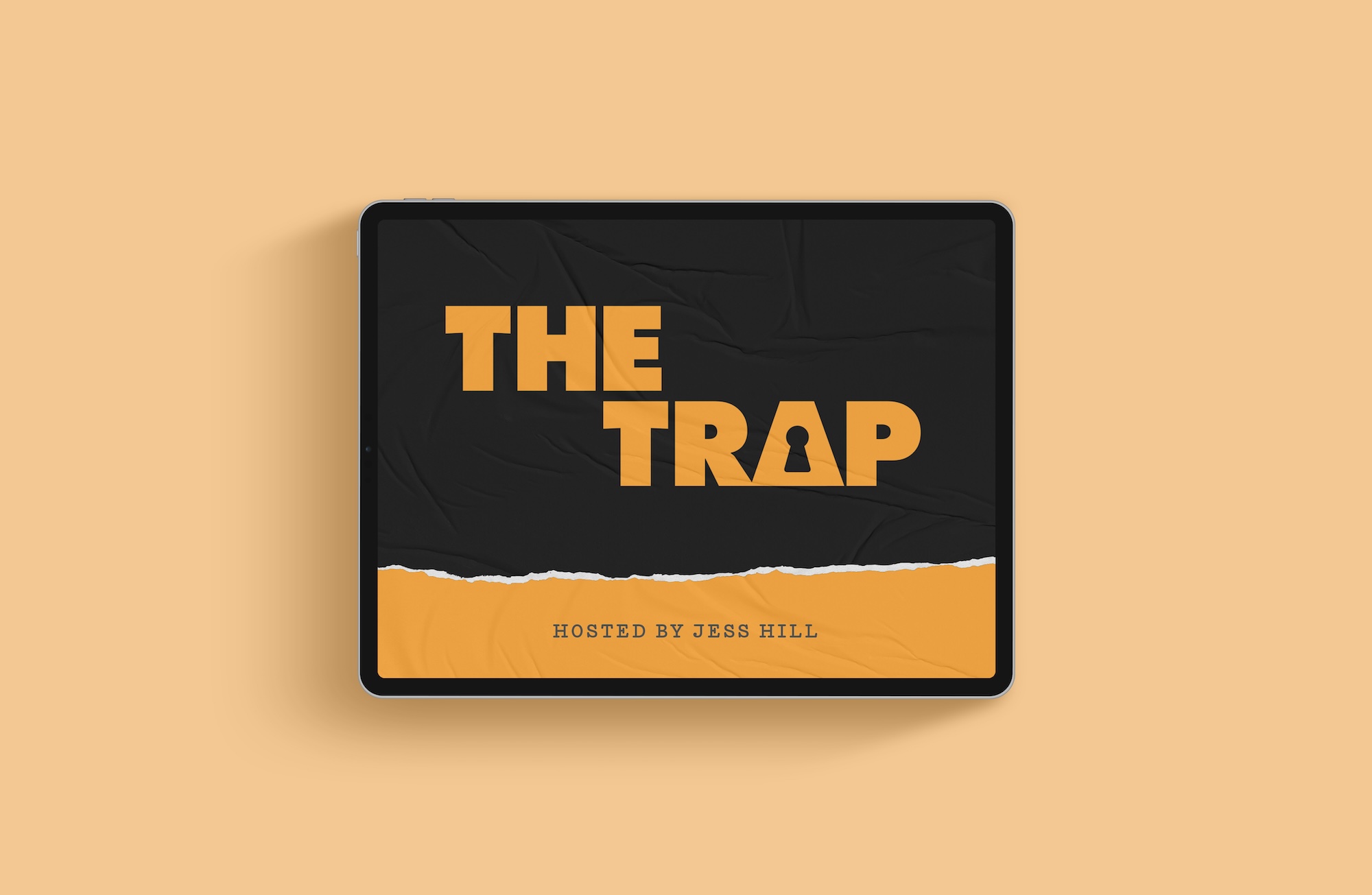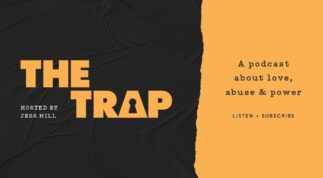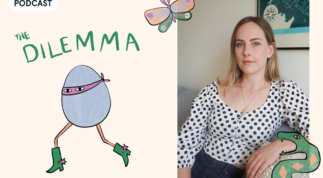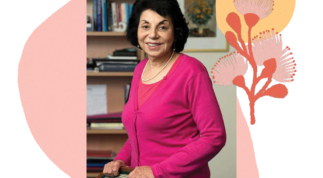When Jess Hill, commissioned by the Victorian Women’s Trust, set about to make the harm prevention podcast, ‘The Trap,’ that sought answers to questions to domestic abuse, back in 2021, it would have been one of the only podcasts made that hoped it would one day become unnecessary to listen to.
It was a podcast made for the purpose to eradicate the reason for its existence. But here we are 3 years on, and it is devastating to write that the podcast is possibly more urgent now, more essential that it is heard and shared and discussed through the stratas that this crisis exists – and that is to say, everywhere.
As an award-winning investigative journalist, Jess Hill shone a forensic light on power, control and domestic abuse in her 2020 non-fiction book, ‘See what you made me do,’ and brought the conversation on abuse further out of the shadows.
Mary Crooks, the legendary CEO of the Victorian Women’s Trust, has worked tirelessly to make this world safer for women and their children. In commissioning this podcast she wanted to acknowledge the underpinning issues that drive domestic violence in Australian homes.
“For too long we have tip-toed around the problem of abuse and violence in Australia,” Crooks says.
“There is bland talk of perpetrators without acknowledging that it is our society which conditions many men to act out misogynistic attitudes and behaviours.We need an honest narrative if we are serious about reducing and eliminating all forms of violence towards women and children.”
Only weeks after another national rally to bring domestic violence back into public conversation and to implore – to beg – for political leadership and action, women continue to be murdered in their domestic spheres. So it is with a heavy heart, I ask you to listen, again, and again and again to this incredible podcast that asks, ‘Why does domestic abuse persist? Why do people become abusive? And what can we do to prevent it?’
I first heard this series back in 2021 and interviewed Jess for my radio show on the ABC. I remember at the time feeling such deep gratitude for the work that Jess, the VWT, frontline services, and particularly the victim-survivors do as they continue to excavate their trauma in their endless hope that through this labour, we might be better. It’s hard to bear witness of the enormity of heavy lifting, done particularly by victim-survivors, to solve a problem that has caused such personal damage.
Listening again to this series, three years on, it is interesting to wonder about the context that this podcast exists in now. It would not be difficult to argue that we are in a worse position. But while the statistics yield a devastating blow, maybe there is a small place to acknowledge the small rays of light that have emerged, if only to help cultivate the hope that one day, we will be different. Hope is essential to cultivate the necessary energy to continue the work.
Listening again to this series, its clear that these rays of light have been made possible through podcasts like, The Trap, which have helped us find a better language to understand the complex, multifaceted nature of abuse.
The podcast shines a light in every crevice, so that we are asked to bear witness and to not look away. To take a personal responsibility in understanding, more deeply, the dimensions of domestic abuse.
Through this language – we find deeper and more complex ways to find solutions. We have better words to convey the ideas to each other, in our homes, at work, in our communities. And with every single one of these conversations, with every woman who can see her own story here and know that she is not alone, we can change.
In the last three years, anecdotally, but also being part of a radio station that discusses these issues with the community, I have seen a shift. I have seen that we have moved into a more constructive dialogue. I have noticed in my own community, a capacity to engage everyone in this conversation in a new way, with more nuance and a better chance at change.
‘The Trap’, is at times a hard listen, yes, but it is much more than that. When we invite these stories into our lives, and we are brave to listen, to learn and to better understand, we make our own small shifts. And it will take all of us, not just those who are carrying the burden currently – but all of us – to make the changes that we need to see, so one day, the hope of this podcast, to become unnecessary listening don’t have to listen to The Trap. But as it stands, I encourage you to share it widely, discuss its provocations, make a shift, and honour the work that is currently being done in our name.
The Trap is a 10-part podcast series from the Victorian Women’s Trust, hosted by Jess Hill. Released in 2021, it looks deeply at abuse that happens in private, and in public, searching the world for answers to the questions that continue to confound us. Why does domestic abuse persist? Why do people become abusive? And what can we do to prevent it?
Listen wherever you get your podcasts.
Host: Jess Hill Creative producer: Georgina Savage
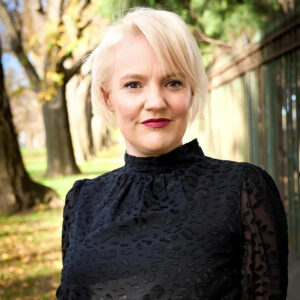 Jacinta Parsons is a broadcaster, radio maker, writer, and public speaker. She currently co-hosts The Friday Revue with Brian Nankervis on ABC Melbourne delivering Melbourne exactly what they didn’t know they needed or wanted. She is a sought after public speaker and facilitator with over 15 years of hosting live events, and is also an active member of the arts and music community.
Jacinta Parsons is a broadcaster, radio maker, writer, and public speaker. She currently co-hosts The Friday Revue with Brian Nankervis on ABC Melbourne delivering Melbourne exactly what they didn’t know they needed or wanted. She is a sought after public speaker and facilitator with over 15 years of hosting live events, and is also an active member of the arts and music community.
Her books Unseen (Affirm Press 2020) & A Question of Age (Harper Collins/ABC Books 2022) are available at all good book stores.
